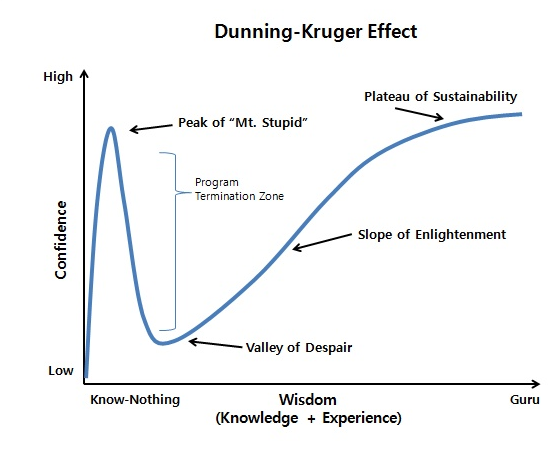
Wiki / Lernen
Inhaltsverzeichnis: (verbergen)
 Bildung, Bleiglasfenster |
|
Lernen besteht in einem Erinnern |
|
Lernen kann man stets nur von |
|
Mit 15 Jahren fasste ich den Entschluss, mich dem Lernen zu widmen. Mit 30 Jahren stand ich fest auf dem Boden. Mit 40 Jahren ließ ich mich nicht mehr von meinem Ziel abbringen. Mit 50 Jahren erfuhr ich den Willen des Himmels. Mit 60 Jahren schenkte ich den Geboten des Himmels ein gelehriges Ohr. Mit 70 Jahren konnte ich nach Herzenslaune handeln, denn meine Absichten durchkreuzten nicht mehr den Willen des Himmels. |
| Quelle: ► Konfuzius (551-479 v. Chr.) chinesischer Weiser, Sozialphilosoph, Stifter der chinesischen Staatsreligion, Analekten des Konfuzius [Text 'Altes Lun Yu]', ~150 v. Chr., zitiert in: Gutzitiert |
| Siehe auch: ► Konfuzius |
|
|
| Quelle: ► Portia Nelson (1920-2001) US-amerikanische Sängerin, Liedermacherin, Schauspielerin, Schriftstellerin, There's a Hole in My Sidewalk. The Romance of Self-Discovery, Autobiographie in fünf Kurzkapiteln, Popular Library, 1977, Beyond Words Publishing, 35. Jubiläumsausgabe 21. Februar 2012 |
| Siehe auch: ► Kollektive tabuwahrende Verleugnungsmatrix |
| See also: ► There's a hole in my sidewalk |
Da das menschliche Gehirn […] nicht wie ein Feststoff-Computer, sondern wie ein elektrisch-kolloidaler Computer arbeitet, folgt es auch den gleichen Gesetzen wie andere tierische Gehirne. Das heißt, die Programme gelangen […] als elektrisch-chemische Verbindungen ins Gehirn.
| |||||||||||||||
| Quelle: ► Robert Anton Wilson (1932-2007) US-amerikanischer Universalgelehrter, Philosoph, Psychologe, Futurist, Anarchist, Romanschriftsteller, Der neue Prometheus, Kapitel 2 "Hardware und Software: Das Gehirn und seine Programme", Hugendubel, 1983, Neuauflage August 2003 |
| ||||||||||||||||||||||||||||||||||||||||||||||||||||||||||||||||||||||
| Quelle: ► Dr. Howard Gardner (*1943) US-amerikanischer Assistenzprofessor der Entwicklungspsychologie, Graduate School of Education, Harvard Universität, Abschied vom IQ. Die Rahmen-Theorie der vielfachen Intelligenzen, Klett-Cotta, 4. Auflage September 2005 |
| Referenz: de.Wikipedia-Eintrag ► Theorie der multiplen Intelligenzen |
| Siehe auch: ► Professionelle Intelligenz – Gunter Dueck |
| See also: ► Theory of multiple intelligences – Howard Gardner and ► Professional intelligence – Gunter Dueck |
|
[*] Fünf verschiedene Denkschemata (Mindsets)
[*] Sieben Intelligenztypen – Eröffnung der Diskussion zu "multiplen Intelligenzen"
"Mein kritischer Durchgang lässt klar erkennen, dass die Erweiterung der ursprünglichen Siebenerliste
um den Begriff der naturalistischen Intelligenz gerechtfertigt ist." Howard Gardner
|
| ||||||||||||||||||||||||||||||
| |||||||||||||||||||||||||||||||||||
| Referenz: de.Wikipedia-Eintrag ► Neurolinguistische Programmierung (NLP) |
| Siehe auch: ► System-Reset ausgelöst durch den weltweiten Shutdown anlässlich der Covid-19-Plandemie 2020 |
| |||||||||||||||||||||||||||||||||||||||||||||||||||||||
|
Persönliches Bekenntnis
Empfehlungen
Schlussfolgerung
Artikel Die pädagogisch-psychologische Konzeption der Krishnamurti-Schulen, präsentiert von Norbert Heider, undatiert
| ||||||||||||||
|
Literaturzitate

Personal avowals
Falsely attributed to Mark Twain (1835-1910)
Recommendations
Conclusions
Future prospects
Insights

Dyslexia characterizes a predominant right brain.

| ||||||||||||||||||
|
Literature quotes
Religious literature
Movie quote
Without the pain
there'd be no learning,
without the hurting
we'd never change.
Kate Bush (*1958) British singer, pianist, songwriter,
Constellation of the Heart, track 9 on "The Red Shoes", released 2. November 1993
He who learns must suffer
And even in our sleep pain that cannot forget
Falls drop by drop upon the heart,
And in our own despair, against our will,
Comes wisdom to us by the awful grace of God.
Aeschylus (525/524-455/456 BC) Ancient Greek tragedian, play Agamemnon
Tell me and I forget,
Teach me and I remember,
Engage me and I learn.
Chinese Proverb
differentiating political progress from social disaster
| ||||||||||||||||||||||||||||||||||||||||||||||||||||||||||||||||||||||
| Written source: ► Howard Gardner, Ph.D. howardgardner.com (*1943) US American assistant professor of developmental psychology, Harvard Graduate School of Education, author, Changing Minds. The Art and Science of Changing Our Own and Other People's Minds, Harvard Business Review Press, 1st edition 1. March 2004 |
| Reference: en.Wikipedia entry ► Theory of multiple intelligences |
| See also: ► Professional intelligence – Gunter Dueck |
| Siehe auch: ► Theorie der multiplen Intelligenzen – Howard Gardner und ► Professionelle Intelligenz – Gunter Dueck |
|
[*] Five different mindsets
[*] Seven Intelligence types – Opening the discussion on "multiple intelligences"
|
| |||||||||||||||||||||||||||||||||||||||||||||||||||||||
| See also: ► Food ► Letting go ► Consciousness ► Unconscious ► Transformation ► Integration |
| Siehe auch: ► Lernphasen – Aufnehmen ♦ Aufspalten ♦ Verdauen ♦ Ausscheiden |
|
| ||||||||||||||||||||||||||||||||||||||||||||||
| Written sources featuring James E. Zull, Ph.D. (1939-2019) US American professor of biology and biochemistry, director of The University Center for Innovation in Teaching and Education (UCITE), Case Western Reserve University, Cleveland, Ohio, author ► Book The Art of Changing the Brain. Enriching the Practice of Teaching by Exploring the Biology of Learning, Stylus Publishing, Arlington, Virginia, 1st edition 31. October 2002 ► PowerPoint PPT The Art of Changing the Brain: Enriching teaching by exploring the biology of learning, date unknown ► Wordpress resource Natural Learning Cycle, summarized by learnercenteredteaching, undated |
| Reference: en.Wikipedia entry ► Primacy effect and recency effect |
| See also: ► Conscious competence learning model ► Four collective denial patterns – Breaking taboos ► Education and ► Beliefs and ► Taboo and ► Meaning and ► Purpose and ► Language ► Goal setting, plans and ► Problem solving and ► Decisions and ► Knowledge and ► Psychology |
|
Primacy effect ⇔ recency effect
"One of the saddest lessons of history is this: If we’ve been bamboozled long enough, we tend to reject any evidence of the bamboozle. |
 Cooking in school |
| |||||||||||||||||||
| Source: ► Article featuring GTI employee Noel Burch, Learning a New Skill is Easier Said Than Done, presented by the Gordon Training International, 1970s, Linda Adams, president of GTI, 2000s |
| References: en.Wikipedia entries ► Four stages of competence and ► 10,000-Hour Rule and ► Dunning-Kruger effect |
| See also: ► From conception to birth – Stanislav Grof ► Four pillars of learning – James E. Zull ► Step models and ► Error and ► Maturity and ► Education and ► Transpersonal psychology and ► Gesetz 3:1 |
 Dunning–Kruger effect = Self-awareness deficit of incompetents = Lack of "knowing thyself"
[Paraphrased summary] Incompetent ignorant Westerners (not Easterners or Resteners) cannot know they're incompetent or deny their lack of skill, experience and knowledge (incompetence). Much incorrect self-assessment of competence of Americans is due to the ignorance of the standards of performance of an activity (such as reading comprehension, motor-vehicle operation, playing chess or tennis, practice of medicine). Justin Kruger and David Dunning's research on patterns of overestimation of competence at Cornell University (1999) indicated that incompetent Westerners will: ➤ fail to recognize their own lack of skill,
➤ fail to recognize the extent of their inadequacy,
➤ fail to accurately gauge skill in others,
➤ recognize and acknowledge their lack of skill only after being exposed to formal training in that skill.
➤ The skills needed to produce a solution coincide with the skills needed to recognize what a right answer is.
|
| Fools rush in where angels fear to tread. […] Distrustful sense with modest caution speaks; It still looks home, and short excursions makes; But ratling nonsense in full follies breaks; Alexander Pope (1688-1744) English translator, poet, neoclassic writer, first major poem An Essay on Criticism, lines 626-628, 1711 |
| References: en.Wikipedia entries ► Dunning-Kruger effect ► Cognitive dissonance ► Curse of knowledge ► Four stages of competence ► Grandiose delusions ► Hanlon's razor ► Hubris ► Optimism bias ► Overconfidence effect ► Self-deception ► Self-serving bias ► Superiority complex ► Ultracrepidarianism |
| See also: ► Knowledge and ► Solution finding and ► Psychology and ► Cognitive dissonance |
| Siehe auch: ► Der Dunning-Kruger-Effekt |
| ||||||||||||||||||||||||||||||||||||||||||||||||||||||
| Source: ► Portia Nelson (1920-2001) US American singer, songwriter, composer, lyricist, painter, photographer, actress, writer, excerpted from her autobiography There's a Hole in My Sidewalk. The Romance of Self-Discovery, Autobiography in five short chapters, Popular Library, 1977, Beyond Words Publishing, 35th anniversary edition 21. February 2012 |
| See also: ► Poems and ► Four collective denial patterns – Breaking taboos |
| Siehe auch: ► Fünf Lernstationen und ► Sucht |
|
When the US American business man, scientist, inventor of electricity Thomas Edison was seven years old he left school after his teacher told his mother that, as a student, Edison was dull, confused and couldn't learn. During the eighty-four years of his life, he patented 1,093 inventions!
The parents of the later genius Albert Einstein's were worried because he was so slow to learn to speak. During his early school years, he did not excel and hated having to attend classes regularly and take the prerequisite exams. |
Links zum Thema Lernen / LearningLiteratur
Literature (engl.)
Externe Weblinks
External web links (engl.)
Audio und Videolinks
Störungen versus Wertemuster als Kooperationsbasis, Erzeugung mentaler Welten. Eine gemeinsame Kultur ist die notwendige Grundlage eines erfolgreichen Lernprozesses in Unternehmen.
Trial and error, Ausblenden, Trivialisieren, Rationale Reduktion, Basis der Intuition, Unterschiede zwischen komplizierten und komplexen Systemen, Musterbildung, notwendige lange Lerngeschichte am Rand der Überforderung, die zur verlässlichen Intuition führen.
Vor-Ort Experimente in Neu Delhi, Indien, Südafrika und Italien ermöglichten Slum- und Schulkindern den selbstbestimmten Zugriff auf das Internet. Die Lernergebnisse können die gegenwärtige Auffassung von Unterricht revolutionieren.
Herkömmliche Resoucennutzungstrategien stehen dem natürlichen Lernen, der Potentialentfaltung, im Weg und vergrößern Probleme.
Audio and video links (engl.)
Discussing the importance of stubbornness and collaboration in problem-solving, the 10,000 hours of practice to master any challenge, example given by role model Andrew Wiles
Tapping the 90% dormant regions of the mind
A series of real-life experiments in New Delhi, India, South Africa and Italy presented kids with self-supervised access to the Internet. The results could revolutionize the current teaching style.
Divergent thinking study (seeing multiple answers to interperting a question); link between three troubling trends: 1. rising drop-out rates,
Explaining the Prisoner's dilemma: Cooperation and altruism fit into the larger evolutionary puzzle.
Intersections of technology, culture and education
Three fundamental responses to the environment: 1. Reptilian brain: Freeze response; 2. Mammalian brain: Fight-or-flight response; Linkless media offering
Documentaries and movies (engl.)
Audio and video links (engl.) – Humor
School in Queensland, Australia, informing parents on options regarding complaints
|
Englisch Wiki
Hawkins
1 nach Ken Wilber ⇑
2 nach Ken Wilber ⇑